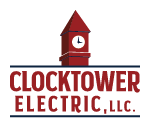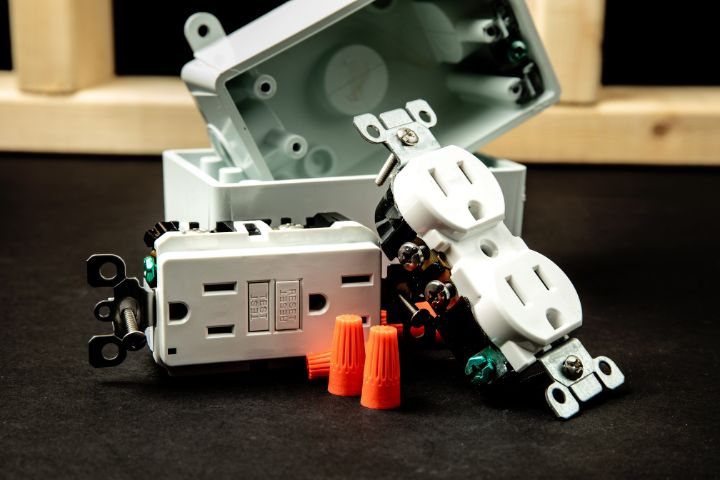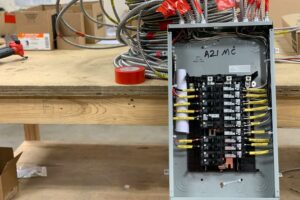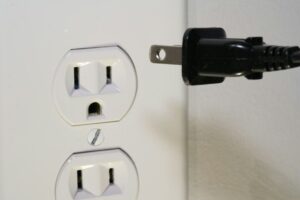When wiring (or rewiring) a home or business, it’s common to wonder whether to use residential or commercial outlets in the installation. While both serve the same fundamental purpose of providing power to electrical devices, understanding the characteristics of commercial grade vs residential grade outlets can help you make a more informed decision for your home or business.
Residential outlets are designed for home use, offering standard voltage (around 120V) and lower amperage ratings for common household appliances. Commercial outlets are built for industrial or business settings, with higher voltage (208-240V), higher amperage ratings, and increased durability to handle the demands of heavy-duty equipmenty.
In this article, we’ll discuss the cost differences, feature differences, and proper applications of commercial vs residential electrical outlets.
Commercial grade outlets vs residential grade: what’s the difference?
Commercial grade outlets and residential grade outlets differ in several key aspects, designed to meet the distinct demands of their respective environments. It’s important to choose the correct type, in order to avoid potential trouble down the road or outlets that flat out stop working. Here are the primary differences between commercial-grade and residential-grade receptacles:
Commercial outlets
Commercial outlets are typically manufactured to a higher standard of durability, as they are more likely to be used around the clock and to be called upon to handle more power at a time. Their amperage and voltage ratings are higher, and they can come in specialized configurations, such as twist-lock outlets or outlets designed for specific voltages.
Commercial outlets are intended for use in high-traffic areas, industrial settings, offices, or environments where heavy-duty equipment is commonly being used. They are also more expensive to install and purchase.
Residential outlets
Residential receptacles have lower amperage and voltage handling ratings, and they come in more standardized configurations (such as duplex outlets and GFCI outlets).
These outlets are designed for use in homes or apartments, where they may remain dormant for long periods of time and only be called upon to power small appliances, electronics, or chargers.
They are less expensive to purchase and install, and for most home applications, they are the right choice. Additionally, they tend to me designed with aesthetics in mind, as they will likely be used in living rooms, bathrooms, and residential kitchens.
Choose your outlets wisely (based on their intended application)
Proper application of residential grade outlets
Residential grade outlets are ideal for powering everyday electrical devices such as lamps, computers, chargers, and small kitchen appliances. They are designed for use in homes and are suitable for a variety of applications within a typical household:
- General power outlets
- Lighting
- Entertainment systems
- Chargers and electronics
- Small appliances
- Home office equipment
- Outdoor outlets
- Bedroom outlets
It’s important to note that while residential outlets are versatile and can handle a variety of applications within a home, certain areas may have specific electrical code requirements. For example, kitchen refrigerators, bathrooms, and outdoor spaces often have dedicated outlets with enhanced safety features.
Always consult local electrical codes and consider the specific needs of each area when planning the installation of residential-grade outlets.
Proper application of commercial grade outlets
Commercial grade outlets are specifically designed to meet the demands of commercial and industrial settings where higher power loads and increased durability are often required. They are also useful for situations where multiple high powered devices need to be plugged into the same outlet.
Commercial outlets will typically be used for the following applications:
- Office spaces
- Retail establishments
- Industrial equipment
- Commercial kitchens
- Healthcare or medical facilities
- Data centers
- Educational institutions
- Outdoor and construction sites
- Warehouses and distribution centers
- Specialized equipment
Note that in commercial settings, it’s very important to adhere to electrical codes and safety regulations. Since you’re likely already working with an electrician on the project, consult with them to understand the specific requirements of the equipment being used can help ensure the proper installation and use of commercial-grade outlets in various applications.
Cost considerations
It’s common for people in our community to ask us if they should add commercial grade outlets to their home for increased durability, or for business owners in our area to ask about residential outlets in a business to save money.
Residential outlets typically cost between $1-10 per outlet, whereas commercial outlets can cost $10-50 or more per outlet. If you’re considering commercial outlets in your home, that can add up quickly!
In general, we would recommend using the outlet that makes the most sense for the application. If you’re a homeowner, it’s unlikely that the demands of the power in your home will wear your outlets out prematurely – this tends to be an unnecessary worry.
What’s more important is making sure everything is installed correctly by a licensed and insured electrician, as well as doing electrical inspections and watching for any electrical safety issues that arise.
Next steps
Whether you’re planning to install outlets in a home or a commercial space, being aware of the unique characteristics of residential vs commercial outlets can help you make informed decisions and adhere to electrical safety standards.
By considering factors such as voltage, amperage, phases, location, and specialized configurations, you can ensure that your electrical outlets meet the specific needs of your environment.













